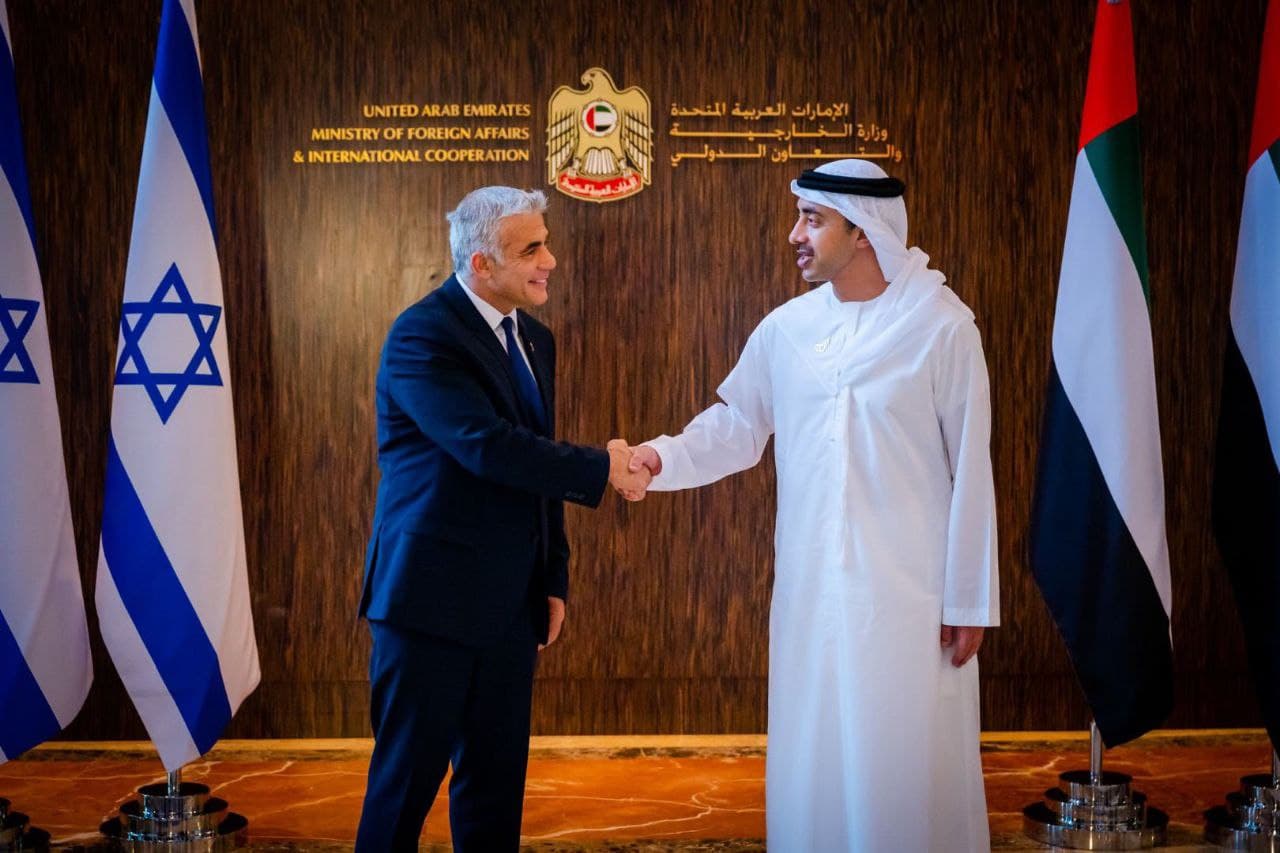AhlulBayt News Agency (ABNA): Israeli Foreign Minister Yair Lapid arrived in the United Arab Emirates on Tuesday to be the first high-level Israeli official to visit the Arab country since establishing formal relations nine months ago.
During the visit, Tel Aviv officially opened its embassy, sending the relations between the two sides to the highest levels. Although the two sides do their utmost efforts to paint the visit positive and fruitful, the developments of the past months in the region certainly overshadowed the largely propagandistic trip.
Gaza war storm sunk the normalization ship
Undoubtedly, the most important regional development that strongly affected the normalization of relations between some Arab regimes and Tel Aviv and whose impacts pushed the détente process to the brink of collapse was the 12-day war on Gaza.
When the UAE shocked the Arab world by normalizing relations with the Israeli regime, it claimed that it would help reduce the long-running Arab-Israeli conflict. At the same time, the UAE claimed that the accord, also called Abraham Agreement, gave them the strength to support the Palestinians and curb Israeli aggression against them. However, 9 months later the Arab regime found itself in a difficult situation as the start of the Gaza war sparked public sentiment in the pro-Palestinian Arab world against the treacherous act of normalization. Although restrictions on freedom of expression and repression by Arab regimes throughout the region had prevented public outrage to boil over to the streets, the enthusiastic pro-Palestinian atmosphere on social media showed that the Palestinian cause was still the most important issue in the Arab and Muslim world. According to polls, about 80 percent of Emirati citizens are "reluctant to have work or sports relations with Israelis." This shows the conflict between the views of public and the official policy of the rulers of the country.
Developments in Palestine, especially in Al-Quds (Jerusalem), caused the UAE to, in a open retreat, take a stance supporting the International Criminal Court's investigation of the Israelis war crimes against humanity in Gaza war.
“The UAE stands with the rights of Palestinians, for the end of the Israeli occupation and with a two-state solution with an independent Palestinian state with East al-Quds as its capital. This is a historic and principled position that does not budge," said Anwar Gargash, the UAE minister of state for foreign affairs on May 16.
To cut the fury waves at home and across the Arab world, the Emirati foreign ministry was fast to condemn the Israeli plans to expel the Palestinians from their homes in al-Quds' neighborhoods, including Sheikh Jarrah. The stances did not appeal to the Israeli side that thought by striking the normalization deal with the Emiratis it can pursue its apartheid schemes with more ease.
Israeli side breaks commitments in normalization agreement
While the UAE Crown Prince Mohammed bin Zayed was particularly keen on the economic benefits of establishing ties with the Israelis, Netanyahu's ouster highlighted the shaky status of the economic concessions made to the UAE under the accord very sooner than expected. Following the push by the Israeli Ministry of Environment to cancel the contract for the transfer of UAE crude oil through the occupied territories to Europe, Israeli media reported about the possibility of a diplomatic rift between Abu Dhabi and Tel Aviv. Reuters news agency quoted a source familiar with the details of the deal as saying that the deal was worth between $700 and $800 million over several years.
This stance of the new Israeli cabinet took aback the Emiratis greatly because it was not the only sign of the possibility of the Israelis' violation of the conditions for implementation of overt and covert provisions of the agreement. Earlier, Netanyahu who was under election pressures enforced a plan to annex West Bank settlements to the already occupied territories, running counter to promises he made to UAE at the time of normalization accord about suspension of all expansionist plans. As a result of the move, Netanyahu's official visit to Abu Dhabi was canceled for fifth time, showing the Emirati anger with his breaking of commitments.
And now the Israeli foreign minister visited the UAE to save the thaw deal while Abu Dhabi is figuring out that the costs of normalization outweighing its benefits. However, the Emirati rulers try to cut the resultant costs and damages and save their face and restore their lost prestige with a glaring propagandistic show.
/129

